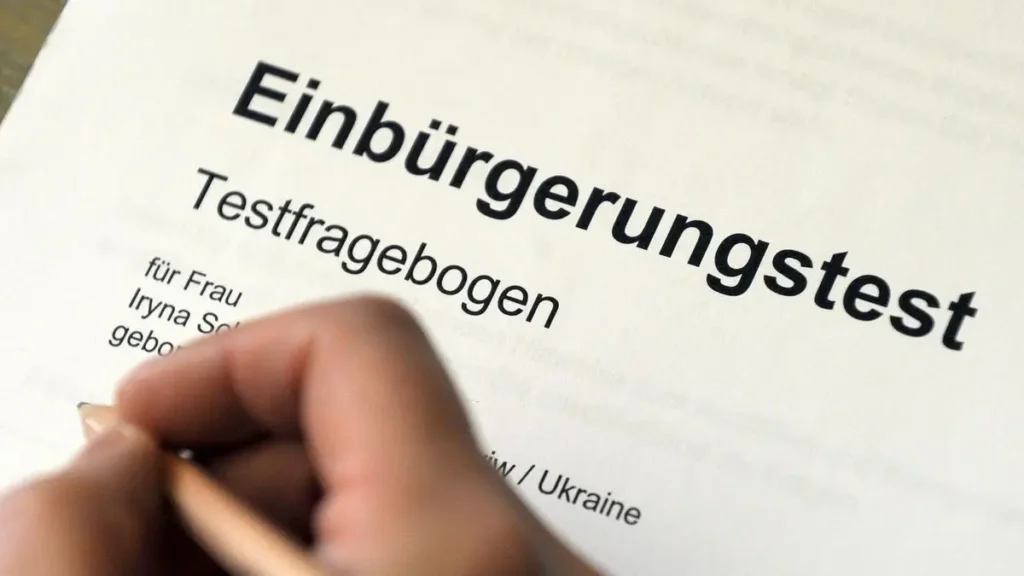The short answer is yes, it is now possible to obtain German citizenship in as little as 3 years, thanks to the new German Citizenship Law passed in 2023. This groundbreaking legislation has significantly reduced the residency requirements for naturalization, making Germany one of the most accessible countries for citizenship acquisition in the European Union.
The New German Citizenship Law: A Revolutionary Change for Immigrants
| New Requirements | Old Requirements |
|---|---|
|
|
The German Bundestag’s approval of the new citizenship law in January 2024 marks a pivotal moment in the country’s immigration policy. This reform, championed by the coalition government led by Chancellor Olaf Scholz, aims to modernize Germany’s approach to integration and address the growing need for skilled workers in Europe’s largest economy.
Key Changes in the Citizenship Law
- Reduced Residency Requirements: The most significant change is the reduction of the standard residency period required for naturalization from 8 years to 5 years. Moreover, in cases of exceptional integration, this period can be further shortened to just 3 years.
- Dual Citizenship Allowed: The new law permits dual citizenship for all applicants, eliminating the previous requirement for most non-EU citizens to give up their original nationality when becoming German.
- Language Proficiency: While German language skills remain crucial, the requirements have been slightly relaxed to accommodate a wider range of applicants.
- Integration Criteria: The law introduces clearer guidelines on what constitutes “exceptional integration,” which is key to qualifying for the accelerated 3-year path to citizenship.
Let’s delve deeper into these changes and explore how they affect potential applicants.
The 3-Year Fast Track to German Citizenship
The provision allowing citizenship acquisition after just 3 years of residency is one of the most revolutionary aspects of the new law. This accelerated path is designed for individuals who demonstrate exceptional integration into German society.
Criteria for Exceptional Integration
To qualify for the 3-year naturalization track, applicants must meet the following criteria:
- Language Proficiency: Demonstrate B2 level or higher in German language skills.
- Professional Success: Show significant achievements in work or education in Germany.
- Civic Engagement: Prove active involvement in German social or community activities.
- Cultural Adaptation: Display a strong understanding and embracement of German culture and values.
- Economic Self-Sufficiency: Demonstrate the ability to support oneself and any dependents without relying on social welfare.
This visual representation highlights the five key areas applicants need to excel in to be considered for the 3-year naturalization track.
Language Proficiency
While the new law aims to make citizenship more accessible, it maintains a strong emphasis on German language skills. For the 3-year path, applicants must demonstrate a B2 level or higher in German, which is considered advanced intermediate proficiency.
What B2 Level German Means
- Ability to understand complex texts on both concrete and abstract topics
- Capacity to engage in spontaneous and fluent conversations with native speakers
- Skills to produce clear, detailed text on a wide range of subjects
- Capability to explain viewpoints on topical issues, giving advantages and disadvantages of various options
Achieving B2 level proficiency typically requires 600-800 hours of study, depending on the individual’s aptitude and prior language learning experience. For those aiming for the 3-year citizenship track, intensive language courses and immersion in German-speaking environments are highly recommended.
Professional Success
The new law places significant weight on an applicant’s professional achievements in Germany. This criterion is designed to ensure that new citizens can contribute meaningfully to the German economy and society.
Examples of Professional Success
- Career Advancements: Rapid promotions or taking on leadership roles within German companies.
- Entrepreneurship: Successfully starting and growing a business in Germany.
- Academic Achievements: Completing advanced degrees or conducting noteworthy research at German institutions.
- Innovation: Developing patents or introducing significant innovations in your field.
- Recognition: Receiving awards or public recognition for your work in Germany.
Documenting these achievements is crucial for your citizenship application. Keep records of promotions, certificates, patents, and any media coverage of your professional accomplishments.
Civic Engagement: Becoming an Active Member of German Society
Active participation in German social and community life is a key indicator of integration. The new law recognizes various forms of civic engagement as valuable contributions to society.
Ways to Demonstrate Civic Engagement
- Volunteering: Regular involvement with local charities, community organizations, or cultural institutions.(discover more how to Accelerate German Naturalization via Local volunteer activities)
- Political Participation: Active membership in political parties or advocacy groups (within legal bounds for non-citizens).
- Community Leadership: Taking on roles in neighborhood associations, school boards, or local initiatives.
- Cultural Exchange: Organizing or participating in events that promote intercultural understanding.
- Sports and Recreation: Active involvement in sports clubs or recreational organizations.
Maintaining a log of your volunteer hours, obtaining letters of recommendation from organizations you’ve worked with, and documenting your contributions can significantly strengthen your citizenship application.
Cultural Adaptation: German Values and Traditions
While the new law promotes a multicultural society, it also emphasizes the importance of understanding and respecting German culture and values. This doesn’t mean abandoning your own cultural identity, but rather demonstrating an ability to navigate and appreciate German societal norms.
Key Aspects of Cultural Adaptation
- Understanding of German History and Political System: Familiarity with key historical events and the structure of German government.
- Appreciation of German Arts and Literature: Engagement with German cultural productions, from classical to contemporary.
- Participation in German Traditions: Taking part in local festivals, holidays, and customs.
- Adherence to German Social Norms: Understanding and respecting punctuality, directness in communication, and environmental consciousness, which are highly valued in German society.
Economic Self-Sufficiency
The ability to support oneself and any dependents without relying on social welfare is a crucial aspect of the new citizenship law. This requirement ensures that new citizens can contribute to Germany’s economic stability.
Demonstrating Economic Self-Sufficiency
- Stable Employment: Maintaining continuous employment in Germany, preferably with a permanent contract.
- Income Level: Earning a salary that comfortably covers living expenses and any financial obligations.
- Savings and Investments: Showing financial prudence through savings accounts or investments in Germany.
- Pension Contributions: Regular contributions to the German pension system.
- Health Insurance: Maintaining comprehensive health insurance coverage.
Challenges and Considerations in the 3-Year Citizenship Journey
While the new law opens up exciting possibilities, it’s important to be aware of the challenges that come with pursuing German citizenship in such a short timeframe.
Potential Hurdles
- Intensive Time Commitment: Achieving B2 language proficiency and demonstrating exceptional integration within 3 years requires significant dedication and effort.
- Documentation: Gathering comprehensive evidence of your integration, professional success, and civic engagement can be time-consuming and complex.
- Competitive Process: With the introduction of this accelerated path, there may be increased competition among applicants, potentially leading to stricter evaluations.
- Regional Variations: Implementation of the new law may vary slightly between different German states (Bundesländer), potentially affecting processing times and specific requirements.
- Continuous Assessment: The need to maintain and improve your integration status throughout the 3-year period can be stressful and demanding.
Preparing for Your Naturalization Application
If you’re aiming for the 3-year citizenship track, it’s crucial to start preparing from day one of your residency in Germany. Here are some strategic steps to enhance your chances:
- Immersive Language Learning: Enroll in intensive German courses and seek out language exchange partners to accelerate your proficiency.
- Career Focus: Actively pursue professional development opportunities and document all achievements and advancements.
- Community Involvement: Start volunteering or joining local organizations immediately upon arrival in Germany.
- Cultural Education: Dedicate time to learning about German history, politics, and culture through courses, museums, and local events.
- Financial Planning: Ensure stable employment and maintain detailed records of your financial situation, including tax returns and pension contributions.
- Legal Guidance: Consider consulting with an immigration lawyer specializing in the new citizenship law to guide you through the process.
- Networking: Build relationships with German citizens who can potentially vouch for your integration efforts.
The Future of German Citizenship
The introduction of this accelerated path to citizenship reflects Germany’s evolving approach to immigration and integration. As the country continues to position itself as an attractive destination for skilled professionals worldwide, we may see further refinements to the citizenship process in the coming years.
This new law not only benefits individual immigrants but also strengthens Germany’s position in the global competition for talent. By offering a clearer and potentially faster path to full civic participation, Germany is sending a strong message about its commitment to diversity and inclusion.
For those considering a move to Germany or already residing there, this new law presents an unprecedented opportunity. The possibility of obtaining citizenship in just 3 years is a powerful incentive for highly skilled and motivated individuals to choose Germany as their long-term home.
FAQ on German Naturalization in 3 years
In conclusion, while the 3-year path to German citizenship is challenging, it is indeed possible under the new law. It requires exceptional dedication to integration, language acquisition, professional success, and civic engagement. For those willing to embrace this challenge, the reward is the opportunity to become a full-fledged citizen of one of Europe’s most influential and prosperous nations in a remarkably short time. As with any significant life decision, thorough research, careful planning, and possibly professional guidance are essential to navigate this accelerated journey to German citizenship successfully.




